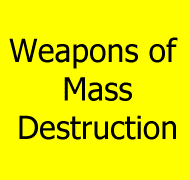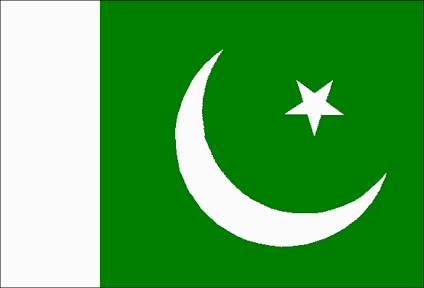





Like India, Pakistan has numerous munitions systems which could be used to deliver CW agent, including artillery, aerial bombs, and missiles. Pakistan has a less-well developed commercial chemical industry than India, but is expected to eventually have the capability to produce all precursor chemicals needed to support a chemical weapons stockpile.
Pakistan's market for industrial chemicals is expanding gradually, with production of chemicals largely confined to soda ash, caustic soda, sulfuric and hydrochloric acid, sodium bicarbonate, liquid chlorine, aluminum sulfate, carbon black, acetone and acetic acid. Although imports account for most of the market, local production is expected to increase as new plants come on stream. There are over 400 licensed pharmaceutical companies in Pakistan, including 35 multinationals who have over 60 percent of the market share. Approximately one-third of Pakistan's total consumption of pharmaceutical is imported. Major suppliers include the United States, the U.K,, Germany, Switzerland, Japan, Holland and France.
Pakistan has ratified the Chemical Weapons Convention [CWC], and maintained that it did not have any chemical weapons capabilities to declare under the Convention. However, according to Indian intelligence estimates, Pakistan -- dependent on foreign sources of chemical warfare technology -- has manufactured weapons for blister, blood, choking and nerve agents. China may be an important supplier of technology and equipment to Pakistan. It is widely believed in India that Pakistan used chemical weapons against Indian soldiers in Siachen in 1987. In 1992 India declared to Pakistan that it did not possess chemical weapons, and India and Pakistan issued a declaration that neither side possessed or intended to acquire or use chemical weapons.
In conformity with its declared policy of seeking the complete elimination of weapons of mass destruction from the South Asian theatre of tensions, Pakistan participated in the long negotiations leading to the conclusion of Chemical Weapons Convention. Despite concerns and reservations regarding certain provisions of the CWC which were articulated at the time of the Convention's conclusion as well as subsequently, Pakistan signed the CWC to underscore a commitment to the objective of the complete elimination, regionally and globally, of this means of warfare.
The entry into force of the Convention revealed the reality of the presence of Indian chemical weapons stockpiles and production facilities designed to be used against Pakistan. This created a qualitatively new situation for Pakistan and complicated the decision to ratify the Convention. The rightwing religious/political movement Jamaat-e-Islami, led by Qazi Hussain Ahmed, held rallies to mobilise public opinion against CWC ratification. Adding to the controversy were statements of retired generals such as Hamid Gul and Mirza Aslam Beg, charged that Pakistan had made a major compromise by signing the CWC.
Despite these challenges, the Government of Pakistan submited its instrument of ratification to the CWC on 28 October 1997. The CWC was neither discussed in the parliament nor brought before the Federal Cabinet. Although Pakistan does not admit to the manufacture of chemical weapons, it does use and consume a number of chemicals that can be utilised for producing chemical arms. If Pakistan had remained out of the treaty it would have been denied access to such dual-use chemicals.
Under the CWC Pakistan is obligated to open all its installations for inspection. At the first stage, the team of UN inspectors visited the Wah Ordinance Factory on 19 February 1999to assess whether Pakistan is producing chemical weapons. According to one published report, the Pakistani government had dismantled the chemical plant in the factory, the earth was dug up quite deeply after the plant was dismantled, and it was followed by a leveling of the land.
